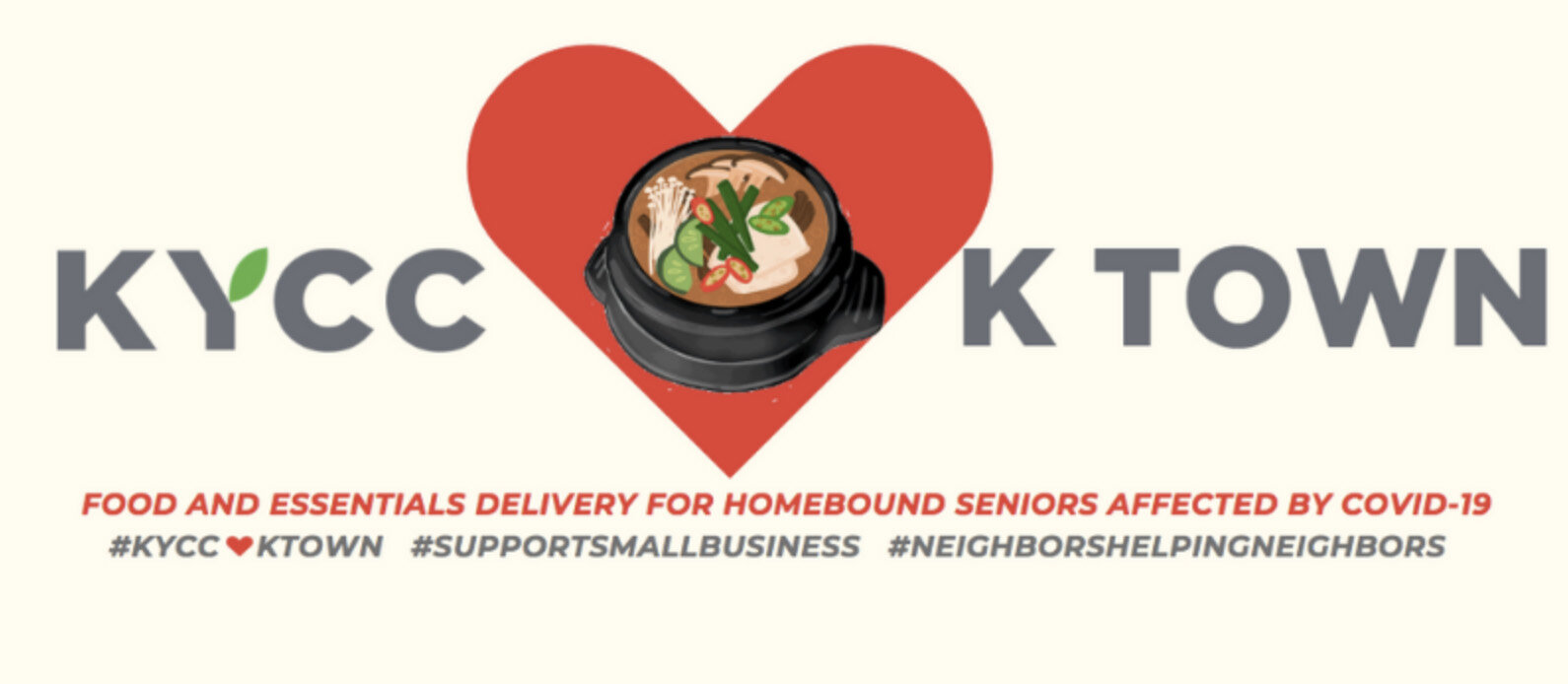Community Organization Spotlight I : Koreatown Youth and Community Center (KYCC) 🌱
Part I of our Speed Dating: Get To Know Your Local APIDA Community Orgs series, a project headed by Catherine Kim, our Diversity Liaison, and Christopher Liu, our External Community Chair.
Introduction
Hello APASA! Catherine and I are launching Speed Dating: Get To Know Your Local APIDA Community Orgs, a new initiative where we will be interviewing APIDA focused community organizations and APIDA professionals around the Los Angeles area and sharing with you all the most exciting highlights! We aim to showcase the organization to USC students, as well as ask about topics that we think are most pressing to USC students right now: ranging from work/volunteering opportunities, APIDA race relations, professional development and how COVID-19 has been affecting org/business operations. We will be posting these on the APASA website as a yearlong project, so you can look forward to them here!
“I firmly believe that the Asian American voice must be incorporated into the national rhetoric for racial justice and all the other social movements that are happening in this country”
- Steve Kang
Steve Kang serves as the Director of External Affairs at the Koreatown Youth and Community Center, where he is highly active in overseeing Koreatown Community Projects ranging from affordable housing, education, and COVID-19 relief. As a native Angelino and Korean American, he is an extremely prominent advocate for APIDA and community social issues within the larger LA community. Leading up to his tenure at KYCC, Steve graduated from Columbia University with a B.A. in Political Science and has worked in the past as State Assembly District Director.
I had the wonderful opportunity to sit down and interview Steve on a wide variety of topics ranging from social activism within the Asian American community, to how USC students can get more involved with KYCC initiatives, to the projects that KYCC are working on right now and beyond the pandemic.
All About KYCC: Current and Future Projects. COVID-19 Operations
Q: Tell me about KYCC’s mission—what does that looks like within the broader LA community?
A: Our mission is to serve the Korean American community, but also the broader, multi-ethnic, diverse community here in Koreatown and also the greater L.A. city and county of Los Angeles. So KYCC, we started in 1975, but the K really evolved from Korean to Koreatown in early 2000 to really reflect the diversity of our community here.
[KYCC] really works in a multifaceted fashion, [and] we are a comprehensive nonprofit agency providing everything except direct medical services. So it's anywhere from affordable housing, mental health counseling to small businesses, financial literacy courses, youth programs. We also have a trilingual preschool and a large environmental program.
Q: What are some major projects and initiatives currently being launched by your organization right now with the pandemic going on?
A: KYCC has been designated as one of the essential agencies within the city and county of Los Angeles, so we started a couple of programs to really help the people in our community. So for one, we started an emergency food delivery program [called Hot Meals for Koreatown Elders] to really serve the low income seniors and other low income families in Los Angeles, [and] we have so far delivered over ten thousand hot meals in the town area.
Another COVID-related [problem many are experiencing] is how many people are applying for EDD unemployment, paycheck protection programs, SBA loans, disaster related funding mechanisms. But as you might be able to relate to, there's a large portion of our community that do not speak English as their native language. There's all these different languages that people speak primarily in their home. And unfortunately, given the pandemic, there aren't many language support services for a lot of these products. KYCC has jumped in with providing language assistance for people applying for all of these programs in either English, Korean or Spanish.
Q: Looking towards the future, what are some of the future goals you have in mind?
A: We are trying to be at the forefront of developing projects where 100% of the new apartments will be dedicated towards low-income families. Koreatown and the entirety of LA is experiencing gentrification [footnote below], so we want to be a thoughtful partner with the city.
Environmentally, Koreatown is one of the most densely populated areas in the country. Because of that, we lack any type of greenspace. I invite USC students as future planners, architects, or designers to work with us to come up with a larger community plan for greening. I invite them to our website, kyccla.org, where when you sign up, there are areas where you can indicate your interest on a specific project or issue, so that you can work on a project that is relevant to you.
[Gentrification is a process where old buildings and properties are replaced with more affluent and expensive properties. This often displaces individuals of lower income who inhabited these neighborhoods before, and this has been an especially large issue within the LA area. This DailyTrojan article explains a viewpoint where USC is involved with gentrification, and this is an NPR podcast discussing LA gentrification.]
Asian Americans and social activism, BLM, race relations, and starting tough conversations
Q: One thing I've noticed with all of the current social movements and like BLM and all is that there's this stereotype among a lot of Asians and Asian-Americans that we aren't too active when it comes to social issues and political movements. Why do you think that stereotype persists and how true do you think it is, especially for the younger generation? And also, why is it so important for more Asian-Americans to get involved?
A: It's a very relevant issue more now than ever, because I firmly believe that the Asian American voice must be incorporated into the national rhetoric for racial justice and all the other social movements that are happening in this country, and with the November elections coming on.
I think it's great to see that Vice President Biden nominated ... the first female African-American as well as South Asian [Sen. Kamala Harris]. So it's very historic for both fronts. But for the Asian-American community, I think one of our biggest obstacles is the prevalence of the model minority myth. In the model minority stereotype, people perceive that Asian-Americans are just all around well educated, [and] make a lot of money. We're very smart and we're driven. Yes, all of that is true. And I think that's true for every community, but that label shouldn't be put for the entire community as a whole.
As you know, the Asian-American community is extremely diverse. And I think it's very much important for all of us to unite at this important juncture in our history and really speak up when our community is attacked, because there's an alarming rise in anti Asian sentiments and hate across the country and across the world. So I think we have to unite and show a united front for our community and also speak up when there are issues that impact our community.
I think for a lot of us, because of our culture and our upbringing, we stay silent when a lot of important issues come up. However, I think it's important that we learn to speak up when things come up. And I think that it's going to be a huge mechanism for change in the future.
Q: Was there a challenge for you that was particularly hard for you to overcome?
A: Bridging the different generations within the Asian American community has been my biggest challenge so far. Within the Korean American community, that is bridging the first generation, 1.5, 2nd, and 3rd generations together. Because of the long immigration history and the upbringing and all of the diverse cultures mixed in, just navigating those layers of different generations, language barriers, and educational levels has been a big challenge … Being from the younger generation, I don’t want to forget my parents and the seniors especially- I think they add an important voice to the conversation so that we learn from the past mistakes.
Q: To follow up on that, something that I have noticed especially within the Asian American community across generations is that there are many differences- different cultures, education levels, and societal levels. Sometimes that makes it hard to have meaningful conversations. Do you have any sort of advice on starting these conversations?
A: For example, most recently with the BLM movement, it was important for me to help educate my parents and grandparents and some of the individuals from the older generation in my family about all the issues that are prevalent in our society and the issues about racism and I think even within our own communities we have perceived prejudice and stereotypes. It’s very important for us to really translate those messages into our unique cultures and convey these messages to our families and friends first and foremost. This will really help disseminate these messages to the wider community as a whole. We are showing solidarity not only with the African American community, but for all communities of color.
USC Student Involvement: Volunteer and Work Opportunities w/ KYCC
Q: Pivoting back towards KYCC, USC APIDA community is really diverse, and there are a lot of students who are looking to get more involved with nonprofits and the local community. Are there any future upcoming opportunities for students to volunteer, collaborate, or potentially intern?
A: Yes! USC has been a great ally and partner for the organization—whether it is the USC organization supporting our programs or USC students volunteering in programs such as tree planting, graffiti removal, to youth services. I do want to invite all students who want to get more involved to our website kyccla.org where people can sign up for volunteer opportunities, get updates, as well as follow all of our social media including Facebook, Instagram, and Twitter. I also encourage people to engage with other orgs in the Koreatown Area … If there is an issue that really motivates you everyday, there is an organization out there for everybody … It would be a great thing to witness many more collaborative things from USC students as a whole.
Q: Could you speak to maybe the specifics of some of the volunteering opportunities that Usc students have worked on in the past?
A: Yes! I know that many USC students are really passionate about global warming and other related issues, so they come out to many community events for tree planting, and we are one of the largest nonprofits in the area that plants trees - we also plant trees near USC as well! When the tax season comes around the beginning of next year, we mobilize huge free tax prep events. We are one of the largest agencies providing free tax prep services for low income families, and we do over 15,000 tax returns annually. We can’t do that all alone, and we rely on volunteers. You don’t have to be a professional, a CPA, or certified.. Also, many students are passionate about tutoring underprivileged students. Right now because of COVID we have a lot of virtual learning, and we would love to see more mentorship and tutoring for our low income students.



